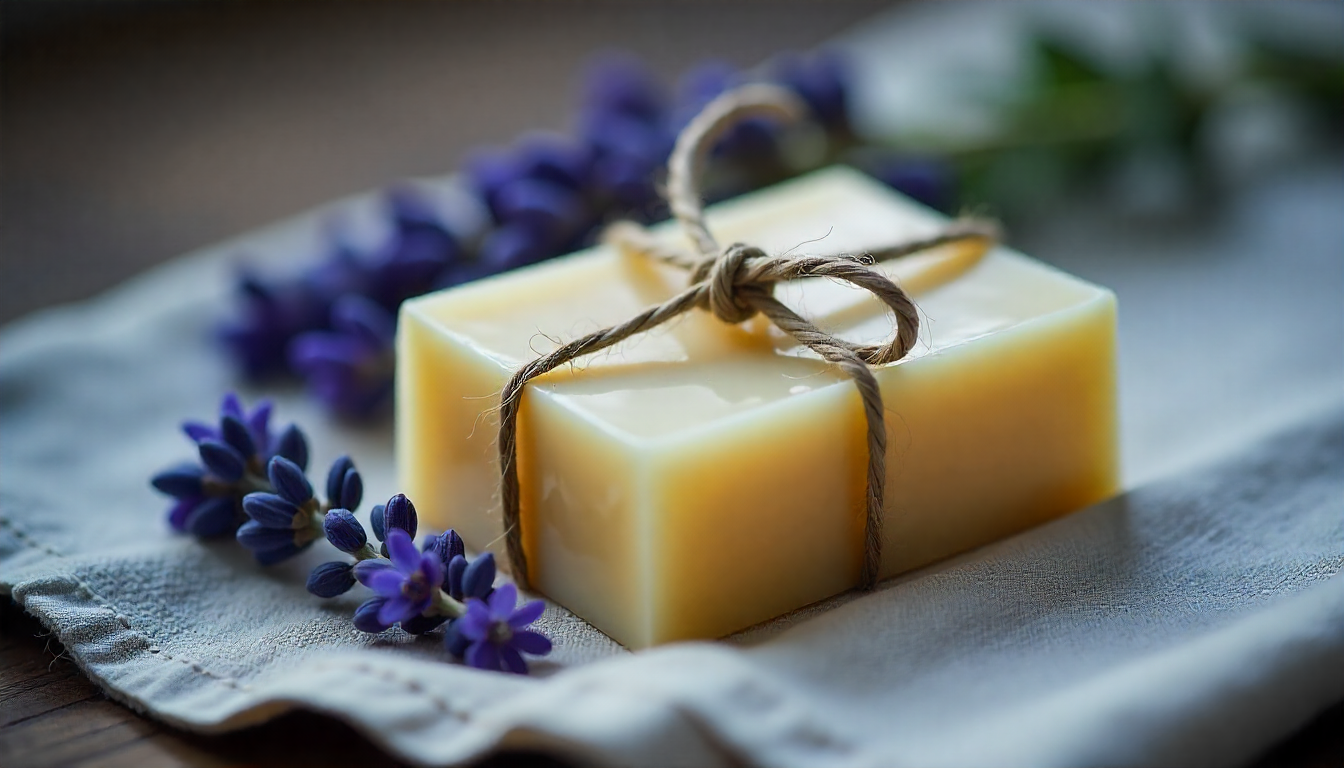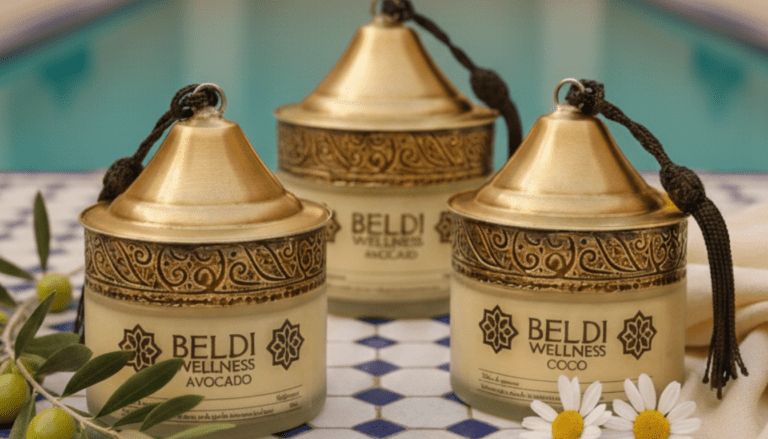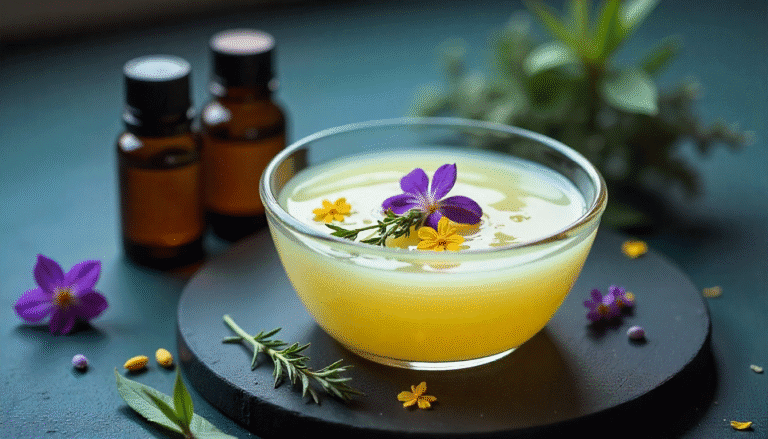Introduction to Soap and Its Importance
Soap plays a fundamental role in personal hygiene and is a crucial component in maintaining cleanliness. Throughout history, soap has been utilized for its ability to remove dirt, bacteria, and other impurities from the skin. The importance of soap extends beyond mere cosmetic appeal; adequate hygiene practices significantly reduce the risk of infections and enhance overall health. The efficacy of soap stems from its unique chemical structure, which allows it to break down oils and fats while attracting water, making it an effective cleaning agent.
Today, the market offers a plethora of soap options, ranging from mass-produced commercial brands to artisanal, handcrafted varieties. Among these choices, it is vital to discern the differences between various types of soaps. Many conventional soaps contain synthetic ingredients, artificial fragrances, and harsh chemicals that can irritate the skin and disrupt the natural microbiome. These drawbacks highlight the importance of selecting gentle, non-toxic alternatives that prioritize skin health. Natural soaps, such as those made from plant-based oils, are gaining popularity due to their nourishing properties and fewer harmful additives.
The evolution of soap-making dates back thousands of years, with ancient civilizations utilizing simple recipes involving fats, oils, and alkalis. This historical context illustrates humanity’s enduring commitment to hygiene through innovative cleansing solutions. Recently, there has been a notable shift towards natural, chemical-free products, as consumers become increasingly aware of the adverse effects of synthetic ingredients on both health and the environment. Tallow soap, derived from animal fat, is one of the nourishing alternatives that has garnered attention for its moisturizing properties and minimalistic ingredient list. In light of these developments, embracing natural soaps aligns not only with individual skin health but also with broader ecological sustainability efforts.
What is Tallow Soap?
Tallow soap is a traditional cleansing product crafted from rendered animal fat, primarily derived from beef or mutton. The key ingredient, tallow, is obtained by melting down and purifying the fat, which results in a stable and versatile base suitable for soap-making. This age-old practice has been utilized for centuries, cherished by many cultures for its effective cleansing properties and ability to produce a rich, creamy lather. Tallow soap is particularly renowned for its skin-nourishing qualities, as it retains a natural balance of fatty acids beneficial for maintaining skin health.
The process of creating tallow soap involves several meticulous steps. Initially, the raw fat undergoes a rendering process that separates any impurities and moisture, yielding a clean and usable tallow. Subsequently, this tallow is combined with an alkaline substance, usually lye, in a saponification process. This chemical reaction transforms the fat molecules into soap, resulting in a product that cleanses the skin without the harsh effects commonly associated with synthetic detergents.
Being derived from animal sources, tallow is often viewed through the lens of sustainability. When sourced responsibly, it serves as a byproduct of the food industry, thereby minimizing waste. Additionally, unlike many commercial soaps that contain synthetic additives or artificial fragrances, tallow soap is free from harmful chemicals, making it an eco-friendly alternative. Its natural composition contributes to a lower environmental impact, aligning with growing consumer interests in sustainable and chemical-free products. As such, tallow soap not only provides effective cleansing but also supports a more conscious approach to personal care.
The Benefits of Using Tallow Soap
Tallow soap has garnered significant attention for its myriad skin benefits, primarily attributed to its unique moisturizing properties. Derived from rendered animal fat, tallow is rich in fatty acids similar to the natural oils found in human skin. This similarity ensures that tallow soap effectively nourishes and hydrates the skin, making it an excellent choice for those struggling with dryness or skin that requires extra care. The presence of saturated fats like palmitic and stearic acids enhances the soap’s emollient qualities, providing a soft, smooth feel to the skin after cleansing.
In addition to its moisturizing capabilities, tallow soap is celebrated for its chemical-free composition. Many commercial soaps are laden with synthetic ingredients and harsh chemicals that may aggravate sensitive skin, leading to irritation or allergic reactions. On the other hand, tallow soap can be made with minimal, natural ingredients, ensuring a gentle cleansing experience without the inclusion of harmful additives. This makes it particularly suitable for individuals with sensitive skin or conditions such as eczema and psoriasis.
Another notable advantage of tallow soap is its ability to balance the skin’s natural oils. By providing essential lipids, it can help regulate sebum production, preventing the skin from becoming overly dry or excessively oily. This balance is critical for maintaining overall skin health, as it can diminish the likelihood of breakouts and other skin concerns. Many users have reported improvements in their skin texture and tone after incorporating tallow soap into their daily routines.
Personal anecdotes further support these claims, with numerous users praising the soap for its soothing properties and effectiveness in managing various skin issues. Overall, the multifaceted advantages of tallow soap present a compelling case for its adoption as a preferred cleansing alternative.
How to Incorporate Tallow Soap into Your Routine
Integrating tallow soap into your daily skincare routine can be a seamless and rewarding transition. Tallow soap, known for its gentle, moisturizing properties, can be used in various ways to enhance your cleansing experience. One of the most beneficial methods is using tallow soap for facial cleansing. It effectively removes dirt and makeup without stripping the skin of its natural oils, making it suitable for both dry and sensitive skin types. To use tallow soap on your face, simply lather it in your hands, apply the foam to damp skin, gently massage, and rinse with lukewarm water.
In addition to facial cleansing, tallow soap can serve as an excellent body wash. Its creamy texture allows for efficient cleansing while providing hydration, leaving the skin feeling soft and nourished. When using it as a body wash, consider pairing the soap with a natural loofah or washcloth to enhance exfoliation and circulation. Furthermore, tallow soap is ideal for shaving, as it creates a rich lather that helps to moisturize the skin, reduce razor burn, and improve overall shaving precision. Simply apply it directly to the area to be shaved, and enjoy a smoother shaving experience.
When selecting tallow soap products, it is crucial to look for high-quality options made with grass-fed tallow and natural ingredients. This ensures you receive all the benefits while avoiding harsh chemicals and additives commonly found in commercial soaps. As you transition from traditional cleansers to tallow soap, you may notice improvements in your skin’s texture and hydration levels over time. Users often report fewer irritations and a more balanced complexion as their skin adapts to the nourishing properties of tallow soap. Embrace the journey to healthier skin by adding tallow soap into your daily routine, and experience the various benefits firsthand.



